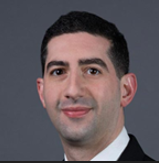Dr Zachary Solomon: Success Rates in Adult Cardiac Procedures
Dr Zachary Solomon: Success Rates in Adult Cardiac Procedures
Blog Article

In new decades, person cardiac surgery has skilled extraordinary advancements, pushed by cutting-edge technologies, enhanced surgical methods, and a greater comprehension of individual cardiac structure and pathology. These advances have considerably improved individual outcomes, paid down recovery occasions, and widened the number of choices for treating a lot of cardiac conditions. In this post, we'll take a deeper look at some of the very impactful improvements in the subject of adult cardiac surgery according to Dr Zachary Solomon Philadelphia.
Minimally Unpleasant Surgery
Traditionally, cardiac surgery expected big incisions, such as a sternotomy (where the chest is exposed through a vertical incision). But, minimally invasive cardiac procedures (MICS) have transformed this landscape. Using smaller incisions, endoscopic cameras, and particular instruments, surgeons are now able to accomplish complex techniques with less stress to the patient.
Robotic-Assisted Surgery
Robotic-assisted surgery is still another groundbreaking advancement. Surgeons use automatic methods to achieve accuracy and get a handle on that could be difficult with the human hand alone. These robots are designed with little instruments and high-definition 3D cameras, providing unmatched vision and dexterity.
Transcatheter Aortic Valve Alternative (TAVR)
TAVR has changed the administration of aortic stenosis, specially in individuals considered high-risk for open-heart surgery. During a TAVR procedure, a prosthetic device is put using a catheter often through the femoral artery and deployed within the diseased aortic valve.
Sophisticated Imaging Techniques
The development of imaging modalities has empowered cardiac surgeons with extraordinary preoperative and intraoperative visualization capabilities. Technologies such as for instance 3D echocardiography, Cardiac MRI, and CT angiography enable accurate planning and execution of surgical interventions.
Gene Treatment and Regenerative Medicine
While however in the fresh stage, gene treatment and regenerative medicine hold potential to transform cardiac surgery in the future. Scientists are investigating methods to repair heart muscle applying stem cells and gene-editing technologies.
Conclusion
Advancements in person cardiac surgery in which Dr Zachary Solomon is part of have drastically improved how heart conditions are handled, giving patients less unpleasant choices, quicker healing occasions, and greater outcomes. As engineering and medical technology continue steadily to advance, the near future supports a lot more promise for improvements that may modify the landscape of cardiac care permanently as Dr Zachary Solomon would say. Whether through minimally unpleasant methods, automatic aid, sophisticated imaging, or innovative study in gene treatment and regenerative medication, the area of cardiac surgery is positioned for a frequently evolving and increasing trajectory. Report this page